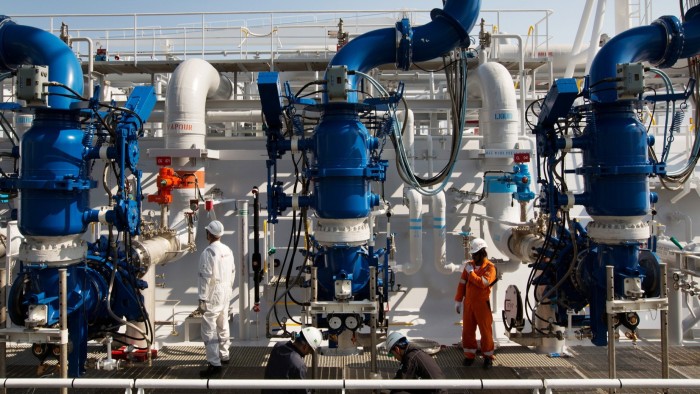Unlock the Editor’s Digest for free
Roula Khalaf, Editor of the FT, selects her favourite stories in this weekly newsletter.
BP and its partners have given the green light to a $7bn gas project in Indonesia that will later go on to use carbon capture in the production process, as major energy companies continue to bank on demand for gas growing in the region.
The project is an additional development of the Tangguh liquefied natural gas project in Papua, which has been shipping LNG to Asian countries like Japan and China since 2009. BP holds a 40 per cent stake in the project, and will foot the equivalent portion of the $7bn bill.
The project would look to develop a field called Ubadari, which would feed into the LNG facility. The plan is to enhance gas recovery through capturing associated CO₂ from the field, then recompressing and injecting it to maintain pressure in a nearby reservoir.
This will be BP’s first ever carbon capture, utilisation and storage project. Production at the field is expected to start in 2028, the British major said on Thursday.
Other partners in the project include China’s Cnooc and Japan’s Nippon Oil Exploration.
The decision to give the go-head comes as BP and its competitors scale back their renewable ambitions and bet on a future where fossil fuels will play a role in the global energy mix for longer.
The UK-listed company has refocused on its core oil and gas business since Murray Auchincloss was appointed chief executive in January, and in September put BP Wind Energy, its onshore wind business in the US, estimated to be worth $2bn, up for sale. Shareholders also expect the company to scale back its climate targets further.
At the same time, oil majors have been putting a renewed emphasis on LNG, viewing it as a bridge fuel that can ease the transition away from coal and into renewable energy. Shell in February said in its closely watched global LNG outlook that global demand for it was expected to surge 50 per cent by 2040, as China and developing Asian nations switched from dirtier coal to the comparatively cleaner fuel.
However, climate activists have challenged the notion of gas and LNG being transition fuels. They say that although natural gas is cleaner than other fossil fuel alternatives, it still releases substantial amounts of carbon dioxide when burnt. Natural gas is also mostly composed of methane, which generates more warming than carbon dioxide but is shorter-lived.
Indonesia is a major exporter of LNG, natural gas liquefied by cooling it to minus 162C. The Muslim-majority nation was the third-largest exporter in the region after Australia and Malaysia. Tangguh LNG currently has a production capacity of 11.4mn tonnes, and the country is also developing a 9.5mn tonne project, Abadi LNG, scheduled to come online in 2030.
Read the full article here

